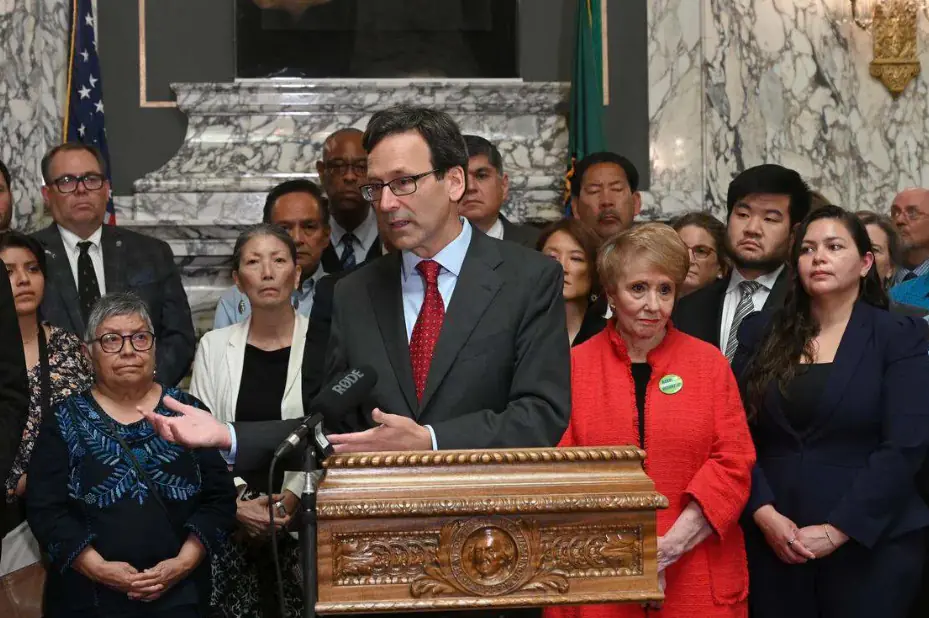Washington Governor Bob Ferguson displayed unwavering resolve on Tuesday in the escalating conflict with the U.S. Attorney General concerning the state’s immigration policies.
During a press conference in the State Reception Room of the Legislative Building in Olympia, Ferguson directly addressed the demands set forth by Attorney General Pam Bondi in a letter dated August 13. Bondi insisted that Washington drop its sanctuary policies, giving a deadline of Tuesday for a response. In response to this ultimatum, Ferguson emphasized, “I am not intimidated by Pam Bondi, or the president.”
Bondi’s letter outlined concerns that Washington’s sanctuary jurisdiction obstructs federal immigration enforcement efforts, warning of potential criminal charges and civil liability for noncompliant officials and governments. Ferguson, in turn, deemed these threats “breathtaking” and rejected the notion of succumbing to what he considered baseless accusations and intimidation tactics.
The governor’s defense of the Keep Washington Working Act, alongside Attorney General Nick Brown, has remained steadfast. This legislation prohibits local and state law enforcement from aiding federal immigration actions, a stance that has drawn sharp criticism from Bondi and President Donald Trump, who have argued that such policies jeopardize public safety and put American citizens at risk.
Ferguson’s written reply to Bondi, shared by his office following the press conference, countered the Attorney General’s assertions, accusing her of invoking federal statutes without providing substantial grounds or explanation. He stood firm in his commitment to protecting the interests of Washington state and its residents, ready to defend against any legal challenges that may arise from the federal government.
The ongoing standoff between Washington state and the U.S. Department of Justice underlines the broader national debate surrounding sanctuary jurisdictions and federal immigration enforcement. With the threat of federal funding cuts looming and the potential deployment of National Guard troops, the state remains resolute in defending its values and policies amid escalating tensions with the federal government.
As lawmakers, activists, and officials continue to engage in this contentious issue, Washington’s stance serves as a microcosm of the larger ideological divide over immigration policies and federal-state relations in an increasingly polarized political landscape.

